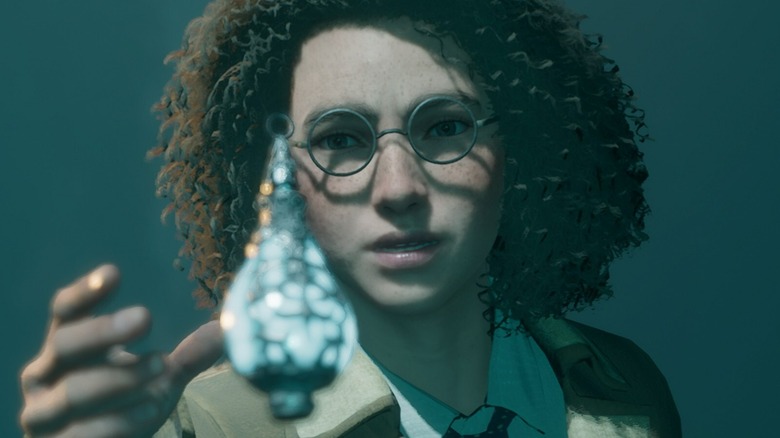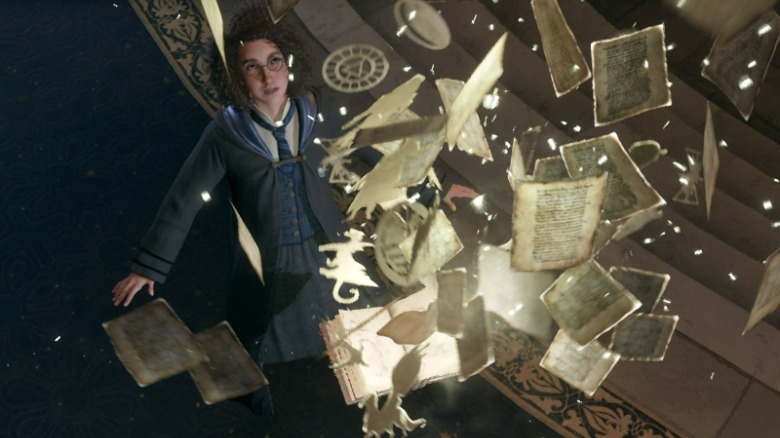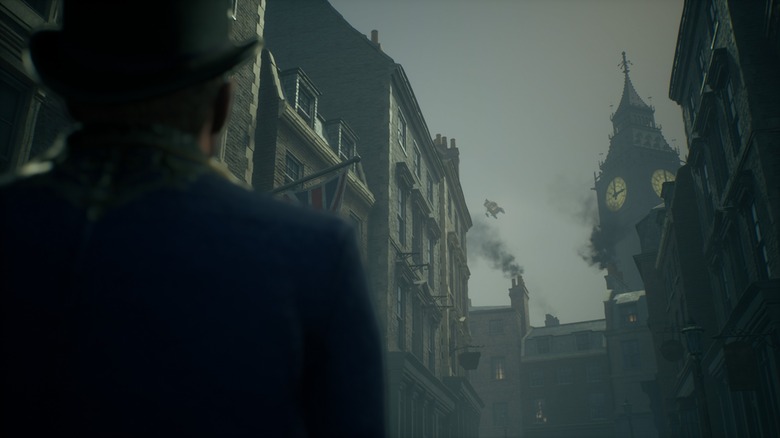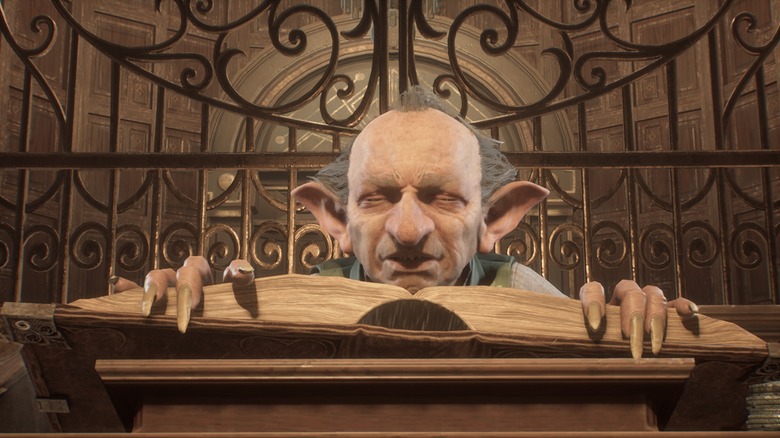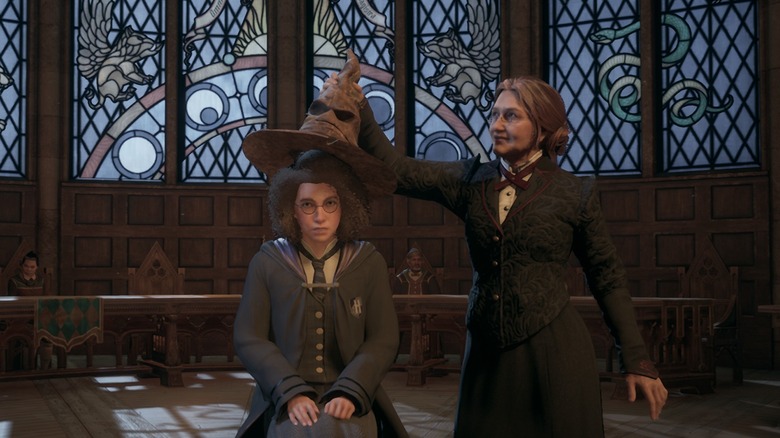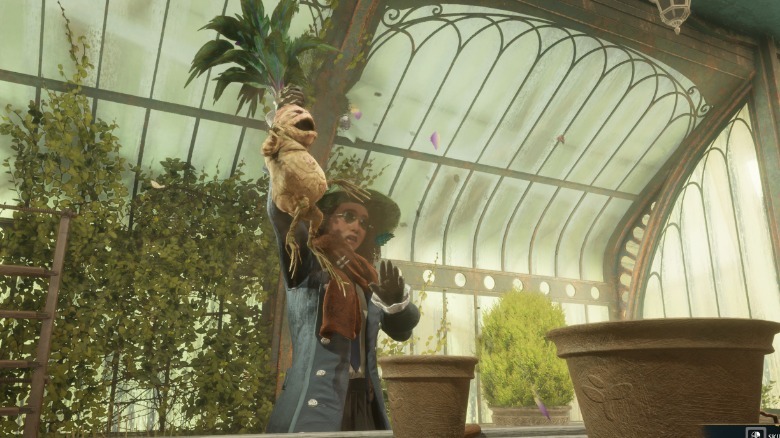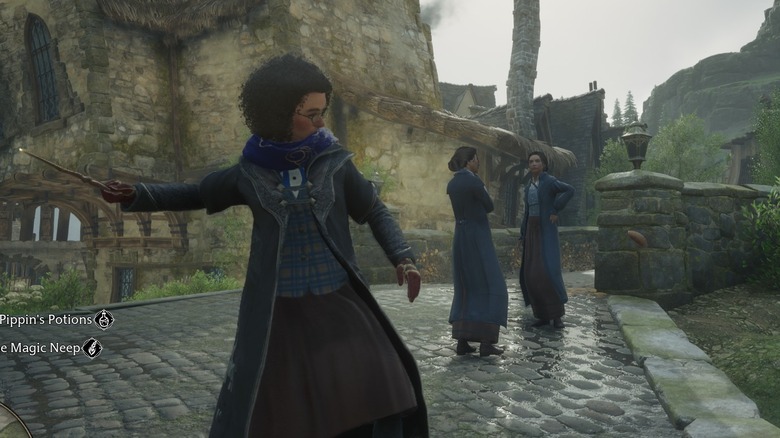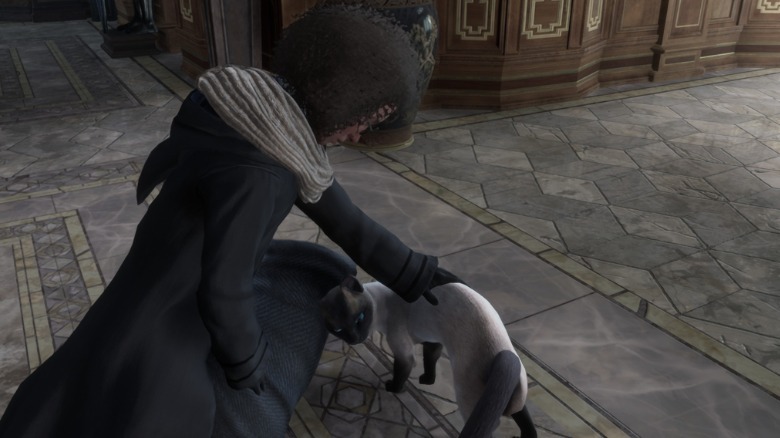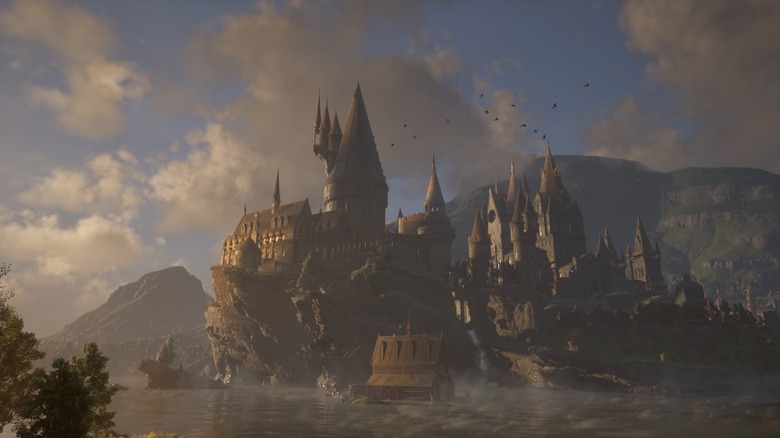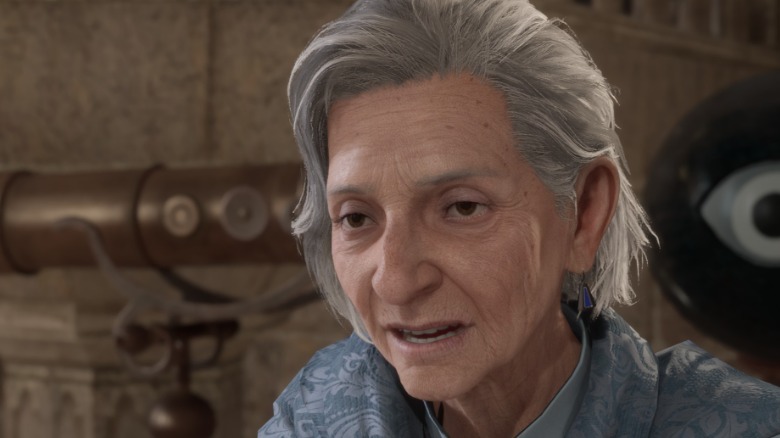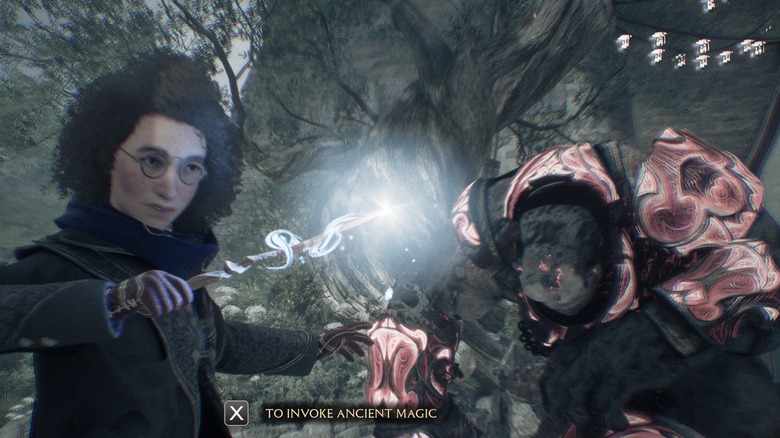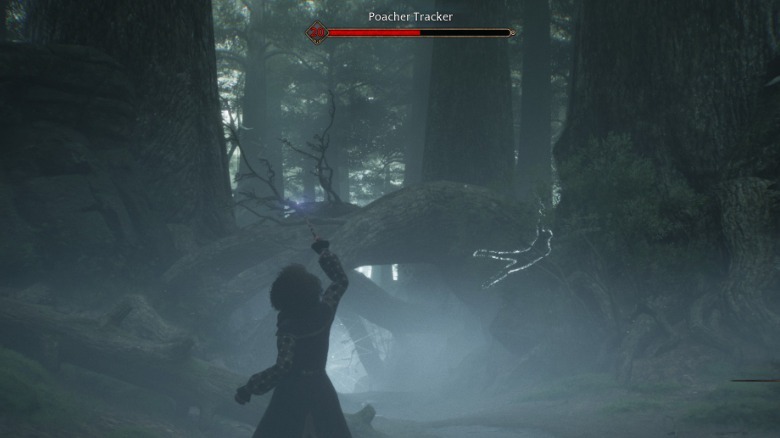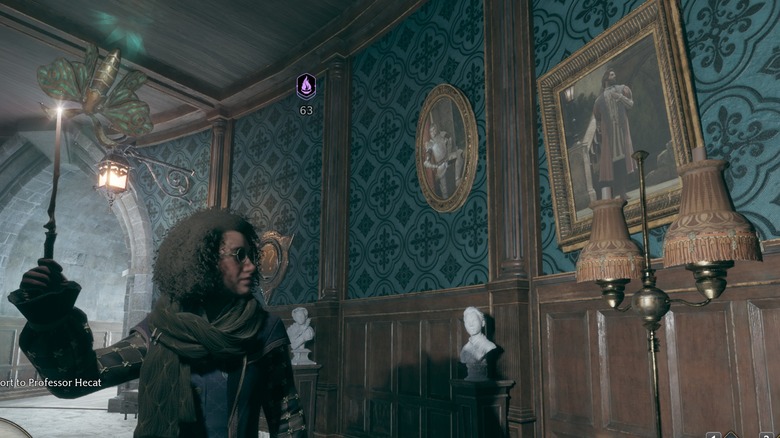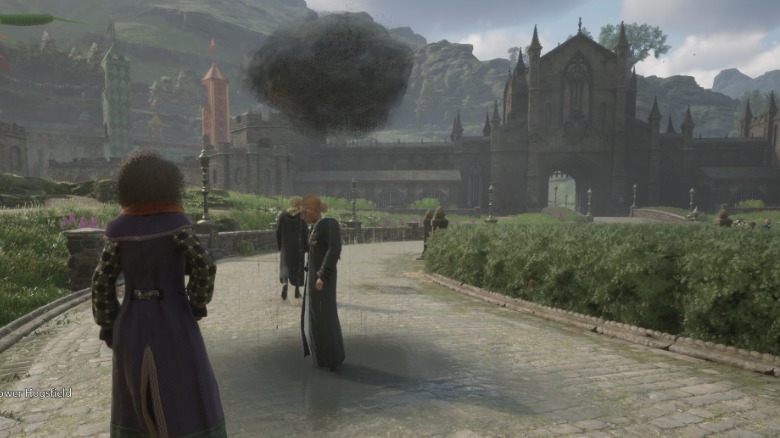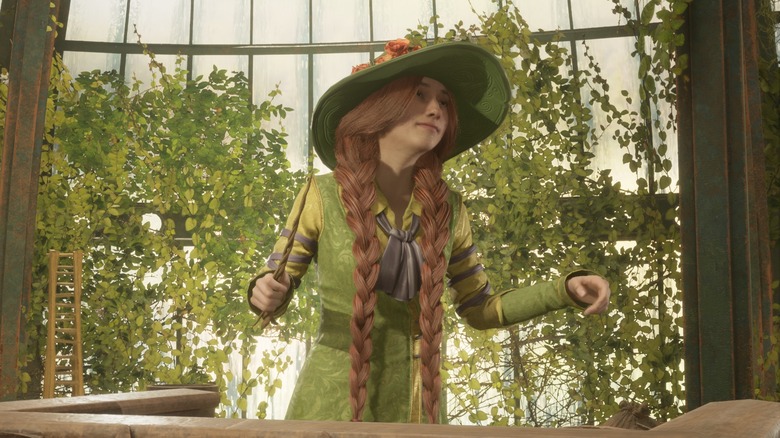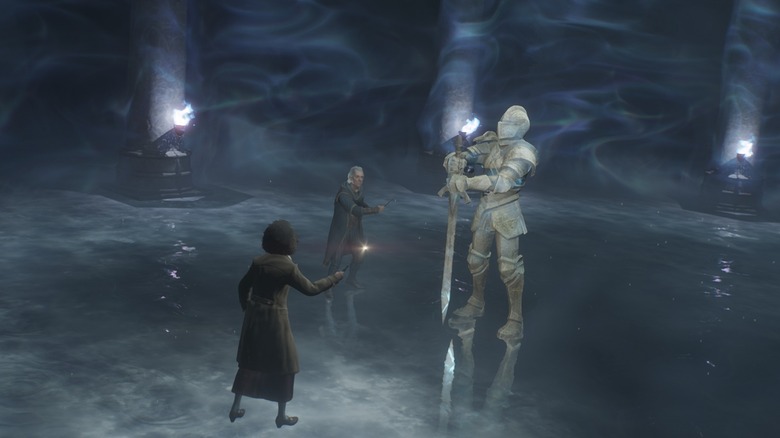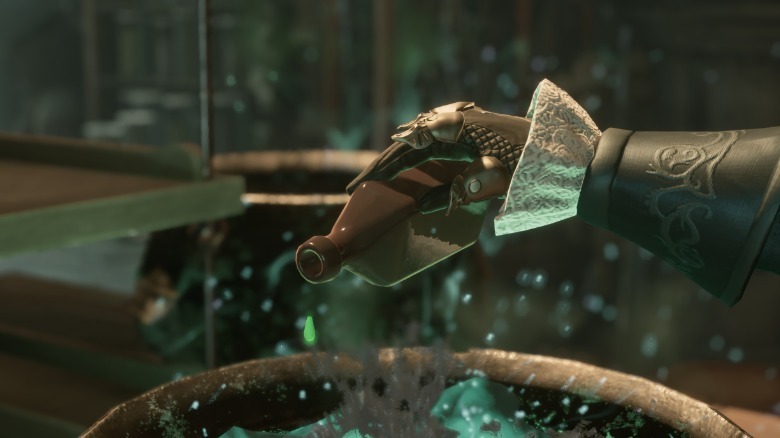Hogwarts Legacy Review (PC): The Magic Potterheads Crave
- No early-release hiccups
- Complex map means tons of exploration
- Smooth combat mechanics
- Beautiful attention to detail
- Minimal cumbersome inventory management
- Graphics load might be too much for some hardware
- No multiplayer or minigame plans as yet
Editor's note: "Hogwarts Legacy" is one of the most controversial titles in the gaming world. Although not directly involved in the development of the game, "Harry Potter" creator J.K. Rowling's highly negative public statements about transgender people have cast a significant shadow over the franchise she created. SlashGear's review addresses the gameplay experience for readers, though its editors acknowledge the challenge inherent in attempting to separate the title from the larger franchise and the controversy surrounding its creator.
At long last, the day for we Muggles to play "Hogwarts Legacy" is finally here. The iconic long-awaited project from Warner Brothers Studios' Portkey Games and Avalanche Studios dropped officially on Friday, February 10, for PC, Xbox Series X/S, and PlayStation 5, with launches for older-generation consoles and the Nintendo Switch slated for later in the year.
There are several titles hitting shelves this year, but this game is easily a top three for me, being a proudly cringy Potterhead since middle school with the Ravenclaw Halloween costume and the Patronus tattoo to prove it. "Hogwarts Legacy" follows a fifth-year Hogwarts student through the wizarding school in the 1800s, who seems naturally affiliated with a mysterious ancient form of magic and is roped into helping uncover details on a bubbling goblin rebellion, led by goblin warlord Ranrok. "Legacy" is a new chapter in the "Harry Potter," well, legacy, and the game is under a lot of pressure to do the magical franchise justice.
It's an open-world action RPG with lofty promises of bringing just about everything we know (and love) about the HP universe, including Butterbeer, riding broomsticks, and being sorted by the old no-nonsense Sorting Hat. So is "Legacy" really something magical, or have Potterheads been holding their breath for nothing? I got my hands on the game to find out.
Spoiler alert: This review centers on playing "Legacy" on the normal difficulty setting. Review and pictures may depict spoilers.
A slow-burn introduction
Don't expect to be tossed into the thickets within the first five, 10, or even 15 minutes of your opening voyage into "Legacy." Depending on how you like to play, that can either be positive or negative, but I enjoyed a mostly passive experience as I got my bearings in the game. The majority of the game's beginning consists of cutscenes, and I didn't even set foot at Hogwarts until about an hour into playing. Acquiring skills and learning spells takes time, and getting to growing your own herbs or mixing your own potions takes even longer, so be patient!
Upon arriving at Hogwarts, I recommend spending a good length of time within the castle, even though the main mission will want to skirt you away to Hogsmeade pretty shortly thereafter. The more Floo Flames that you activate, the easier fast travel will be — and the more side quests and points of interest you will expose early on.
How does a game's narrative change when it's based on a literary franchise?
Following up on the discussion of a slow opening scene, I think it's worth touching on how we seem to hold games that are an appendage to an existing literary legacy in higher regard. So far as I can tell, "Hogwarts Legacy" is the most significant new video game to be developed based on an existing literary franchise in a long time. As any developer of any given "Lord of the Rings" game can attest, creating a game like this assumes the unique challenge of a built-in fanbase, for better or for worse. Generally, this means the highest of expectations and the most extreme critics.
After I finished my first session of "Legacy" play, I was excited to hear what other players had to say about their maiden foray into the game. Between chatting with friends and reading through online conversations, I was surprised to find a recurring dissatisfaction with the game's opening narrative.
Quite a few players were displeased with how little insight they were given into the game's prologue — why am I a fifth-year student? Where am I from and why am I special? What exactly is this Ranrok guy's deal? At the time of this review's publishing, I'm still not far enough into the game to have every single question answered, but if these complaints about the opening scenes and unanswered questions are making you uncertain about the game, my advice is to have faith. "Legacy" is a young story trying to fill the footsteps of a giant. I get annoyed by unforthcoming game narratives, too, but try not to impose an expectation in scope and scale from a seven-book-long series on a video game's opening moments. "Legacy" tells you all that you need to know — in due time.
Addressing the Bludgers in the room
When we play a movie- or book-franchise-based game, there are also certain elements of the literary world that we are fond of and hope to see translated into the game at a breadth and scale that we, perhaps unfairly to the developers, determine almost at a subconscious level.
And in this regard, you truly have to give Portkey and Warner Bros marks for sticking to the trademarks of the universe on which "Harry Potter" was founded — for the most part. Even the film adaptations of the "Harry Potter" book series saw entire story arcs and characters axed from the plot, so it shouldn't come as a surprise that some of the things you might have hoped for — Quidditch, Diagon Alley, more interaction with your owl and the Owl Post, etc. — didn't find a place in the game. Online chatter remains hopeful that Quidditch might someday be a DLC add-on to the game, although developers remain mum on that.
My point on the matter is that, if you can look past the absence of Quidditch (the storyline at least explains the game being missing) and Diagon Alley (which is more than made up for with Hogsmeade, and it makes sense that a London-based component of "Harry Potter" isn't involved in a game that takes place in the Scottish Highlands anyway) you will be more than satisfied with the other traits of being a student in the wizarding world that "Legacy" portrays, from yanking up squealing mandrakes to having your destiny determined by the Sorting Hat... figuratively, of course, since you do have a say in what house you end up in.
And since "Harry Potter" gave us a set of visual standards to hold "Legacy" to with all of the movies, Portkey and company did an excellent job of crafting a world that honors the Hogwarts we saw unfold onscreen starting two decades ago — and the Hogwarts we read about at the same time, to a similar degree.
Portkey's added charm in infinite mini-actions
It is so discouraging to run through an open-world game only to find that the majority of the world around you is a blank facade. Doors that can't open. Trinkets and boxes that you can't interact with. The freedom to roam only contributes fractionally to a positive open-world experience if the roaming is fruitless.
At the same time, not only are there enough serpentine sectors of Hogwarts for you to get lost in more than once, but there are also tons of mini-actions scattered across the game. I must have spent a third of my play time just spinning globes and chopping wood with my wand, sipping tea and eating pastries, skipping rocks, and petting cats — so many cats.
Not exactly paramount to the main narrative, but charming and thoughtful enough to add more wonder to all of those dusty halls and foggy highlands in a way that makes "Legacy" stand out where other open-world games I've played fell short.
The tiny details stitch together an unforgettable experience
If this were the real world — well, as real of a world where I'm chasing down flying book pages or eating candy that makes me breathe fire, anyway — I would flunk out of Hogwarts for never making it to class because I'm too busy marveling at the gorgeous terrain around me. The painstaking care taken in the game's visual design is evident everywhere: mist drifting over the water, moss creeping up the castle walls, and cobwebs clustered in underground chambers. No matter how obscure the map location I found myself, no castle corridor was insignificant enough to be lacking beautiful stone textures and unique artwork.
It took no time to realize that the game's world design — from every bee lazing through the greenhouse to every silver-haired professor's wrinkle to all the glowing lacewing flies in the brush — is quite the load to bear, graphically speaking. Most of my "Legacy" hours have been played on an AMD Radeon RX 6700 XT GPU, with most in-game graphics settings on high, excluding view distance quality and textures, which were on ultra.
At these settings, which were far greater than what the game automatically recommended given my hardware (medium settings were recommended), my frames per second rate hovered between 80 and 115-ish, and never dropped below 60 for the most demanding moments. I was impressed that there were no graphic monstrosities awaiting me in the newly-released "Legacy" — no clipping, ghosting, or misshapen NPCs. It will be interesting to see how much of "Legacy's" graphic mastery is sacrificed for the Nintendo Switch later this year.
There isn't a mechincs overload in combat, spellcasting
There was some concern that "Legacy" would be too tactically demanding in some respects. You're casting spells, you're dodging adversaries, you're utilizing potions and other tools — not to mention simultaneous combinations of all of the above. Fortunately, while there is some level of theatrics involved in learning a spell for the first time, you're not expected to do more than a simple keystroke for every cast thereafter (with keyboard controls on the PC version of the game, anyway), but switching between essential spells will be a bit of a pain until your spell slots are expanded. I did switch to an Xbox controller several hours into playing and found that made instances of intense combat easier.
So far, the majority of combat on the normal difficulty setting has been easy to overcome within two or three attempts at most. You'll have the option to play in story mode, which focuses on minimal fight-oriented encounters, easy, normal, and hard.
I never felt the "I'm burned out, let me come back later" that comes along with notably difficult games. Don't scoff at the many opportunities to practice throughout the quests, though, as these will make getting the hang of things easier out in the wild.
You can seek out more combat in "Legacy" if you choose to. Adversaries in the form of beasts and Dark Wizards lurk in the Forbidden Forest and all throughout the game's expansive map, plus there are friendly dueling opportunities with Hogwarts peers. In normal mode, casual exploration and conflict go hand-in-hand in moving forth comfortably with perfectly balanced gameplay.
A hundred nonlinear side quests and NPC conversations encourage exploration
A hundred isn't an exaggeration here. The "Hogwarts Legacy" map may not look like a sprawl that could rival the map of, for example, "Breath of the Wild," but the regions to explore are densely and complexly layered over one another. There are quite literally side quest opportunities around every corner you turn, and along the way, you'll encounter many fellow students, villagers, and others that you can talk to. I found the dialogue of all the NPCs to be remarkably well thought-out, with a good depth in humor and personality — although the NPC animations were a bit repetitive and uncreative, outside of some laughable outlier situations, like this peer of mine having a bad day.
I also wished there was a stronger focus on the "collaborate with your pals" element of the game at times — a Ron and Hermione to my Harry, so to speak. You're accompanied by a friend a few times, but it's pretty brief compared to how long the game spans. It's a very solitary gameplay, which I see as bad and good.
Most side missions involve being of service to a peer or passerby in need and will reward you with gear, useful items, money, or even new skills. I accepted almost every request presented to me by an NPC, but there was one or two that I declined, mostly out of curiosity about how it would impact the events in the near future. You must decide which NPCs to trust — some of your peer's requests seem nefarious, but could be well-intentioned, while other side excursions may land you in hot water.
However, any potentially-negative outcomes from a side quest, be it declining it or choosing a suspect dialogue path, seem to dissipate pretty quickly, meaning they don't swing a moral compass that impacts your main narrative. Declining a side quest may trigger a unique scene, or nothing may happen at all, but either way, things proceed as usual shortly after. Some side quests can be accepted after they were denied if you change your mind, but others are altered forever after your first decision. I recommend exploring how charitable you should be to all these NPCs in need — because you do have the option to demand compensation for your assistance or, in at least a couple instances, even decide to keep what the NPC had you retrieve for yourself... the immediate consequences of which could be quite interesting.
The way Hogwarts Legacy has changed the gaming community
I think one of "Legacy's" greatest successes comes not in its outstanding graphics or thoughtful narrative or enthralling conflict. This game has drawn new players to the community in a way that many titles are not capable of; longtime "Harry Potter" fans who scarcely have touched a controller or a console, or maybe never have at all, are coming into the video game hobby simply because of this game that reinvigorates a beloved childhood franchise.
And with an increasing amount of major titles offering a story or easy mode on games that could in every regard be reserved as exclusively difficult or "advanced" games for serious players — and with consoles like the Nintendo Switch decimating the threshold on a hobby that could easily cost thousands of dollars — it's worth being celebrated that the community is opening up to new factions — thanks, in part, to "Hogwarts Legacy."
Should you play Hogwarts Legacy?
Is "Hogwarts Legacy" worth the money? While we can't speak for this answer when the game is released for Switch consoles later this year, right now the answer is a resounding yes. This game has been highly anticipated for many years. Now that it's here, we can tell that an immense amount of time, care, and dedication was invested in its development — and marveling at that may be reason enough to give "Legacy" a go. This is the sort of long-term game that you could easily revisit for months or years: Try playing the game as different houses, interact with NPCs in different ways (although keep in mind there is no moral compass alteration to the mission), and visit areas that went unexplored.
Every "Harry Potter" kid of the last two decades has the opportunity to feel like a kid again, especially at a time when the real world feels far from magical. If you want some adventure, some danger, and (don't lie) the chance to wave a wand around, play "Legacy." Just don't get yourself killed — or worse, expelled.
